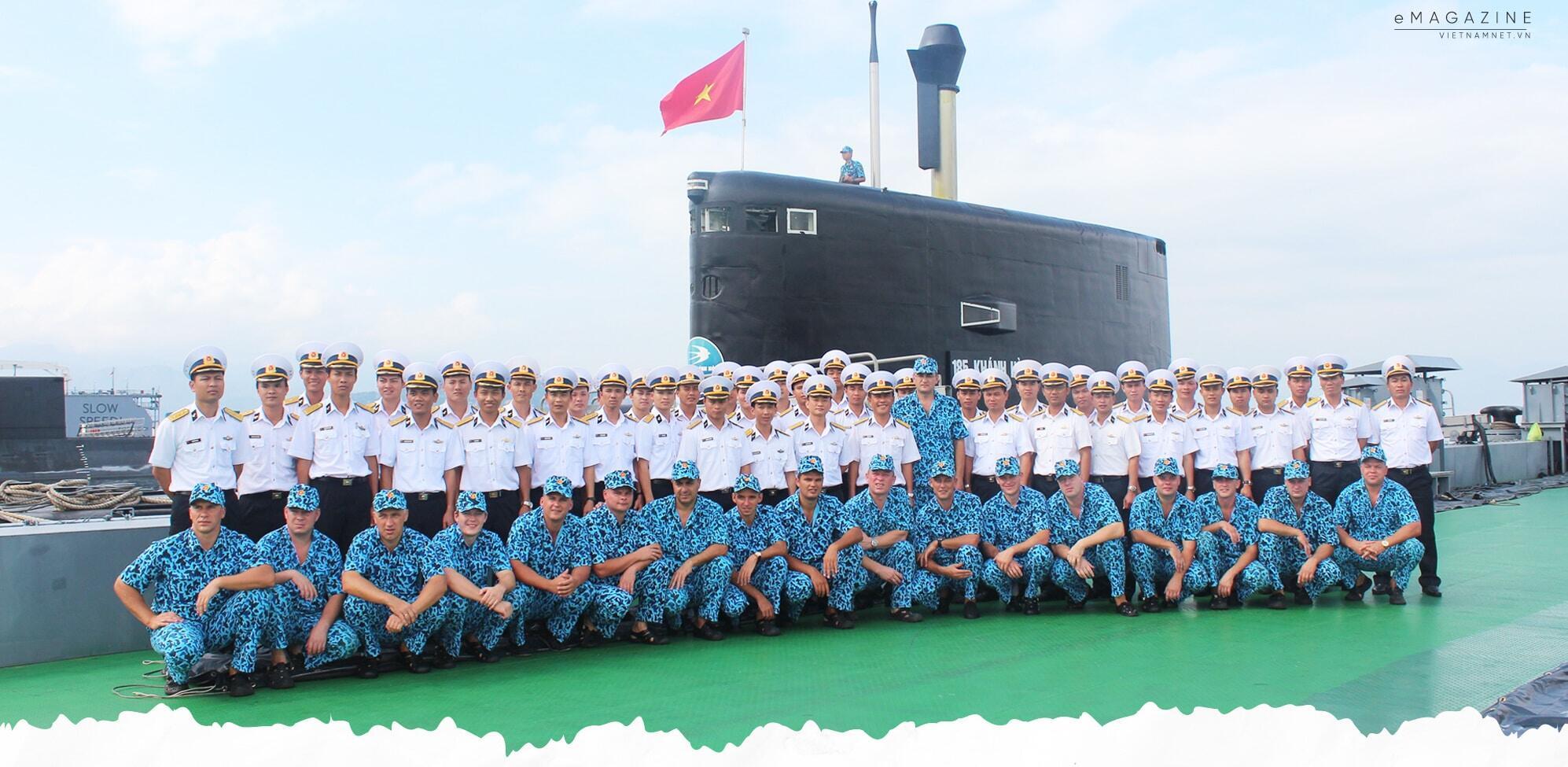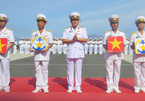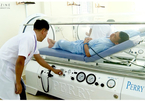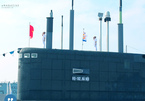
Senior Lieutenant Colonel Vu Van Minh, former Captain of Submarine 182 - Hanoi, the first submarine that performed the task of firing the anti-ship missile from seabed, now Deputy Commander, and Chief of Staff of Brigade 189, said the training of weapon usage on submarines is very difficult and requires careful preparation.
“This was the first time we organized the firing of a missile from a submarine in Vietnamese territorial waters without support from Russian specialists,” he said.
In order to gain the excellent results in this historic practice, solders made thorough preparations from the time the submarine was at port – carefully checking weapons and the operational status of technical equipment. Every operation and action must be coordinated smoothly and closely so as not to miss the opportunity.
After thorough training, the brigade commander and appropriate agencies conducted awareness and skill tests at each combat position. To accurately shoot targets with missiles, the crew on board must be good at tactics, and soldiers in all battle positions must operate accurately.
Meals in engine room
“From the first day of receiving the submarine, we had meals in the engine room, where there is a strong smell of oil, and we spent the days of training without lunch and sleepless nights to fix problems,” Minh recalled.
Diving and floating is a regular task for officers and sailors, which requires high synergies between positions.
“Any wrong operation at any position will affect the operation of the entire ship,” said Major Nguyen Van Hien from Submarine 183 – HCM City.
“Currently, our submarines can conquer different depths within the allowable limit of Kilo 636,” he explained.
Hien said he had a strong feeling when the submarine was gradually submerging.
“The deeper the ship went down, the more strained the eardrum became. It was a little painful. When the submarine got to the planned depth and began to cruise, the ears would adapt to the new environment,” he said.
“Unlike the ship on surface water, when it is in state of diving, the submarine goes very smoothly. When it is floating, because of the oscillation of the sea waves, sailors feel more uncomfortable than in surface ships,” he explained.
Senior Lieutenant Colonel Nguyen Van Bach, Chief Commander of Submarine Brigade 189, said that all the officers and sailors are proficient in the use of weapons and equipment assigned to them.
Very elite force
The 2nd Congress of the Party Committee of the Brigade (2020-2025 tenure) determined the key tasks – building a revolutionary, elite and modern unit with increasingly high professional ability, power and combat readiness, worthy of an elite special force of the army.
Over the past 10 years, the Submarine Brigade has been awarded the first-class and third-class Fatherland Defense Orders by the Party and State. Submarines 182, 183 and 186 have received certificates of merit by the Prime Minister.
The achievements, according to Senior Lieutenant Colonel Nguyen Van Bach, are the results of solidarity, discipline, secrecy and the will to win of every submarine sailor.
“Submarines implement missions in utmost secrecy, even to sailors’ wives and relatives. No outsider knows when submarines depart and dock at ports,” the Commander of the Brigade 189 said.
The workplace of officers and sailors is the narrow space in the submarine. The interior working environment has an impact on their health.
They also have to bear pressure from the work and any minor mistake may greatly affect the operation of the ships and even cause disasters.
“The first virtue that every sailor must have is the sense of discipline, and absolute observance of the commanders’ orders,” said Major Phan Van Binh from Submarine 186 in Da Nang.
Senior Lieutenant Colonel Nguyen Van Quan, Secretary of the Party Committee, Political Commissar of the Brigade, affirmed that all officers and sailors are loyal to the Party, Fatherland and people, determined to build an army force which is politically strong with a high level of mastery of weapons and modern technical equipment, a force that accepts hardships, and is willing to sacrifice and resolutely defend the sovereignty of the sea, islands and sacred continental shelf of the Fatherland.
Minh Thuy - Quang Thang

How are sailors for military submarines selected?
Many military officers with good health indicators have been rejected because of dental caries or an inability to walk on a straight line after vestibule exercises, among other reasons.

Submarine sailors learn to master ‘ocean’s black holes’
Vietnamese submarine sailors are especially admired by specialists and lecturers at the Russian Naval Academy for fulfilling their training course two years ahead of schedule.

Crossing hundreds of thousands of nautical miles to bring submarines to naval base
To bring submarines to Vietnam only one at a time, Vietnamese soldiers had to cross three oceans for 45 days. The submarines were carried by the Dutch Rolldock Sea vessel.